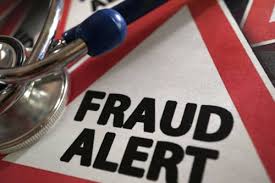The Continuing Plague of Healthcare Fraud

Healthcare fraud is an ever-growing constant in our economy. It is a battle that presents new and exponential challenges. The U.S. Department of Justice, the HHS-Office of Inspector general and State Attorneys’ General all are united in this fight with the support of federal state and local law enforcement.
Companies in the healthcare sector continue to operate in this high-risk environment. The war against healthcare fraud is unique in that dollars dedicated to investing in resources to investigate and prosecute healthcare fraud invariably result in multiples in positive recoveries of proceeds from healthcare schemes. In other words, for every dollar spent on healthcare enforcement, the government earns multiple dollars in recoveries. It is a profitable enforcement mission and a necessary one to deter companies and individuals from engaging in elaborate fraud schemes.
Conservative estimates of the cost of healthcare fraud in the United States exceed hundreds of billions of dollars in the United States. The National Health Care Anti-Fraud Association (NHCAA) estimates that the financial losses due to health care fraud is as much as 10% of our annual health expenditures. Health care fraud results in higher premiums and out-of-pocket expenses for consumers, as well as reduced benefits or coverage. Private and government employers face increasing costs of providing insurance benefits to employees. The healthcare industry has an overwhelming number of unfortunate victims — individuals who are exploited and subjected to unnecessary or unsafe medical procedures, or whose insurance information is used to submit falsified claims.

Federal prosecutors have a large arsenal of criminal and civil tools to fight healthcare fraud, along with law enforcement and regulatory resources. federal prosecutors continue to employ criminal healthcare statutes and most importantly, the False Claims Act to attack healthcare fraud.
Recent DOJ-Lead Healthcare Fraud Takedown
On June 27, 2024, DOJ announced criminal charges against 193 people, including 76 doctors, nurses and other medical professionals, for their roles in healthcare schemes totaling $2.75 billion.
In a two-week operation and takedown, DOJ and its law enforcement partners arrested defendants accused of: (i) over a $900 million fraud scheme committed in connection with amniotic wound grafts; (ii) the unlawful distribution of millions of pills of Adderall and other stimulants by five defendants associated with a digital company; (iii) an over $90 million fraud committed by corporate executives distributing adulterated and misbranded HIOV medication; (iv) over $146 million in fraudulent addiction treatment schemes; (v) over $1.1 billion involving 36 charged defendants in telemedicine and laboratory fraud; and (vi) over $450 million in other healthcare fraud and opioid schemes.
In arresting all the defendants, law enforcement seized more than $231 million in cash, luxury vehicles, gold and other assets located across 32 federal districts.

A brief summary of each of the prosecution initiatives is set forth below:
Amniotic Wound Grafts: Charges were filed in the District of Arizona against four individuals who allegedly filed $900 million in false and fraudulent claims to Medicare for amniotic wound grafts used on Medicare patients. As alleged, the defendants targeted elderly Medicare patients, many of whom were terminally ill. The defendants caused medically unnecessary and expensive amniotic grafts to be applied to these vulnerable patients’ wounds indiscriminately, without coordination with the patients’ treating physicians and without proper treatment for infection, to superficial wounds that did not need this treatment, and in sizes that far exceeded the size of the wound. In just 16 months, Medicare paid two defendants more than $600 million as a result of their fraud scheme, paying on average more than a million dollars per patient for these unnecessary grafts. The government seized over $70 million, including four luxury vehicles, gold, jewelry, and cash.
Distribution of Adderall and Other Stimulants: Five additional defendants associated with digital technology company Done Global Inc. and its affiliated entity, Done Health P.C. (collectively, “Done”), were charged for the unlawful distribution of millions of Adderall pills. The charges announced today include those against one of the most prolific prescribers working for Done, a Florida nurse practitioner who prescribed over 1.5 million pills of Adderall and other stimulants to patients across the United States.

Diverted HIV Medication: Three owners and executives of a wholesale distributor of pharmaceutical drugs were charged in connection with an alleged $90 million wire fraud conspiracy to introduce adulterated and misbranded HIV drugs into the market. The HIV drugs were allegedly acquired through unlawful “buyback” schemes in which previously dispensed bottles of prescription drugs were bought from vulnerable patients. The defendants allegedly purchased these drugs from the black market and resold them to pharmacies throughout the country with falsified documentation designed to conceal the true source of the medication. Pharmacies then dispensed these diverted HIV medications to unsuspecting patients. At times, patients received bottles labeled as their prescription medication, but the bottles contained a different drug entirely, with one patient passing out and remaining unconscious for 24 hours after taking an anti-psychotic drug thinking it was his prescribed HIV medication.

Addiction Treatment Cases: The addiction treatment cases announced today include charges filed in the District of Arizona and Southern District of Florida against four defendants in connection with more than $146 million of allegedly false and fraudulent claims for services for vulnerable patients seeking treatment for drug or alcohol addiction. As alleged in one of the indictments, one defendant paid kickbacks in exchange for the referral of patients recruited from the homeless population and Native American reservations. She then fraudulently billed Arizona Medicaid for substance abuse treatment services that were either never provided or were provided at a level that was so substandard that it failed to serve any treatment purpose. The defendant is charged with money laundering offenses for her lavish purchases with the fraud proceeds, as well as obstruction of justice for allegedly falsifying records in response to a grand jury subpoena for documents. Telemedicine and Laboratory Fraud Cases: Thirty-six defendants were charged in connection with the submission of over $1.1 billion in fraudulent claims to Medicare resulting from telemedicine schemes. For example, in separate cases involving similar schemes that were perpetrated by different criminal networks in the Southern District of Texas, Northern District of Texas, and District of New Jersey, clinical laboratory owners allegedly paid illegal kickbacks and bribes, including to telemedicine companies, in exchange for the referral of orders for unnecessary genetic testing.















